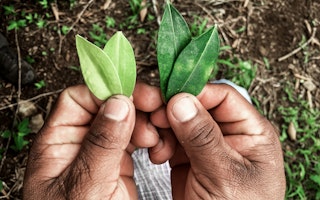Behind the Staggering Rise in Women’s Imprisonment in Latin America
By Coletta A. Youngers
Harsh drug laws are driving a surge in the number of women imprisoned in Latin America.
Between 2006 and 2011, the female prison population in Latin America almost doubled, increasing from 40,000 to more than 74,000 inmates. The vast majority of incarcerated women are in prison for drug-related offenses. Estimates range from:
- 75–80 percent in Ecuador
- 30–60 percent in México
- 64 percent in Costa Rica
- 60 percent in Brazil
- 70 percent in Argentina
- More than 90 percent of Argentina’s foreign female prison population is incarcerated for drugs
As Latin America assumes the lead in reforming drug laws internationally, many domestic laws are incredibly harsh. In some Latin American countries, sentences for drug offenses can be as high as 30 years of imprisonment, often with no distinction between minor offenses and involvement in organized crime.
It is clear today that our punitive law enforcement strategies are unjust and have failed to achieve policymakers’ stated goals: to protect public health and increase public security.
Women are primarily involved in the lowest rungs of the drug trafficking ladder, and more often than not, they become involved in order to put food on the table for their children, according to Women, Drug Offenses and Penitentiary Systems in Latin America, a new report published by the International Drug Policy Consortium and written by Corina Giacomello.
The criminalization of these women hardly makes a dent in the drug trade. When they are arrested, they are easily replaced and criminal structures remain basically intact.
But their incarceration does have tragic consequences both for the already overcrowded penitentiary system and for the lives of those women and the people who depend on them.
At the OAS General Assembly meeting in Antigua, Guatemala, in June 2013, the hemisphere’s foreign ministers issued a declaration that highlights that drug policies need to be implemented from a human rights and a gender perspective, with a focus on prevention and ensure civil society participation.
To meet this mandate, more research is needed on women incarcerated on drug charges across the hemisphere; more proportionate penalties should be imposed for drug offenses, especially for vulnerable groups; and far more prevention and income generating programs should be established to keep women from going to jail in the first place.
Finally, a special focus should be put on alternatives to incarceration for low-level, nonviolent offenders and for social reintegration for those who do serve time such that they can return to their families and communities with opportunities for employment and adequate housing.
The criminalization of poverty is not the solution to problems caused by drug use and drug trafficking in Latin America.
Coletta A. Youngers is an associate with the International Drug Policy Consortium, senior fellow at the Washington Office on Latin America, and a member of the Research Consortium on Drugs and the Law.

